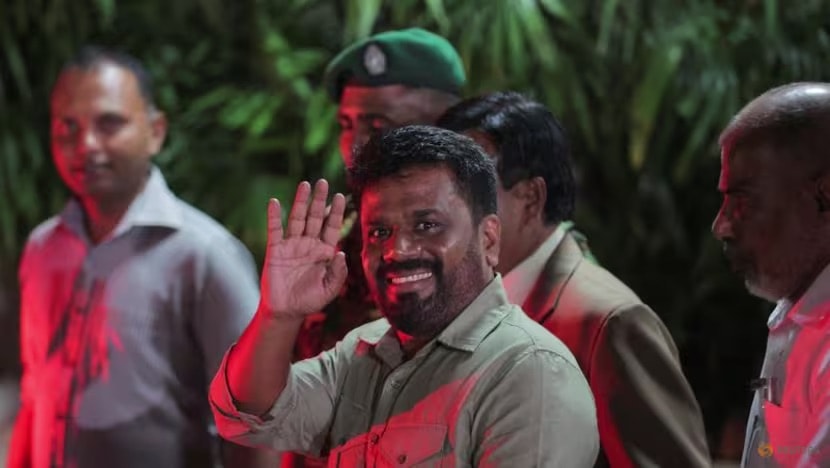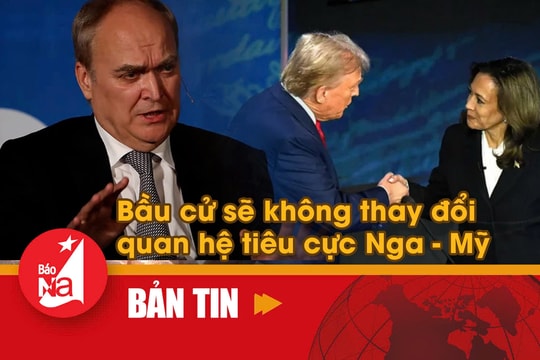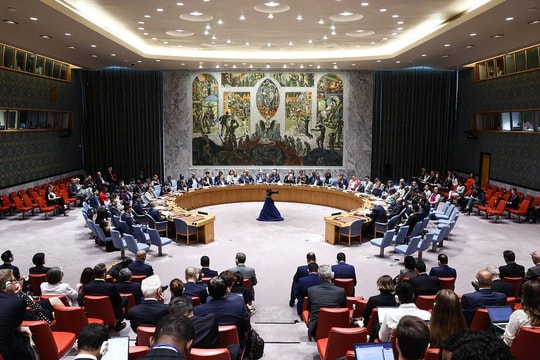New president pledges to 'rewrite Sri Lanka's history'
Sri Lanka's newly elected leftist president on September 22 called on people to join him in "rewriting" the history of the financially troubled island nation after winning the recent election.
Win by a wide margin

Anura Kumara Dissanayake, the 55-year-old leader of the People's Liberation Front, was declared the winner of last weekend's election with nearly 1.3 million more votes than his nearest rival.
The once-unpopular leader, whose party won less than 4 percent of the vote in parliamentary elections four years ago, has seen support surge as the economic crisis has caused widespread hardship for Sri Lankans.
“The dream we have cherished for centuries is finally coming true,” he said in a statement shortly after the results were announced.
“This victory belongs to all of us,” he added. “Millions of eyes full of hope and expectation are pushing us forward, and together we are ready to rewrite Sri Lanka’s history.”
Outgoing President Ranil Wickremesinghe, who took office at the height of the economic crisis in 2022 and imposed strict austerity policies under the terms of an IMF bailout, came third in the election with 17% of the vote.
“History will judge my efforts, but I can confidently say that I did my best to stabilize the country during one of its darkest times,” he said in a statement.
He congratulated Mr Dissanayake on his victory and said he was “confident” the politician would “take Sri Lanka on a path of continued growth and stability”.
US Ambassador Julie Chung also offered congratulations and said in a statement that Washington stands ready to “work together on shared priorities” with the incoming administration.
Election commission officials said Mr. Dissanayake was sworn in on the morning of September 23 (local time) at the Presidential Palace in Colombo.
IMF agreement
Economic issues have dominated Sri Lanka's eight-week election campaign, with many people angry at the austerity measures Mr Wickremesinghe has imposed since the island nation's severe financial crisis reached its peak.
A member of the country's Politburo said Mr Dissanayake would “not tear up” the IMF agreement but would seek to amend it.
“It is a binding document, but there is a clause for renegotiation,” said Bimal Ratnayake.
He said Dissanayake had pledged to reduce income tax, which had been doubled by Mr Wickremesinghe, and cut sales taxes on food and medicine.
“We think we can put those reductions into the program and continue the four-year relief program,” he said.
About 76% of Sri Lanka's 17.1 million eligible voters cast ballots in the September 21 election, Reuters reported.
Mr Wickremesinghe had sought re-election to continue austerity policies aimed at stabilising the economy and ending months of food, fuel and medicine shortages during Sri Lanka's economic crisis.
His two years in office restored calm to the streets after recession-induced civil unrest saw thousands storm the residence of his predecessor Gotabaya Rajapaksa, who later fled the country.
But tax hikes and other measures imposed by Wickremesinghe under a $2.9 billion IMF bailout he secured last year have left millions struggling to make ends meet.
Sri Lanka's poverty rate doubled to 25% in 2021-2022, pushing more than 2.5 million people into the group living on less than $3.65 a day, official data shows.


.jpg)
.jpg)


